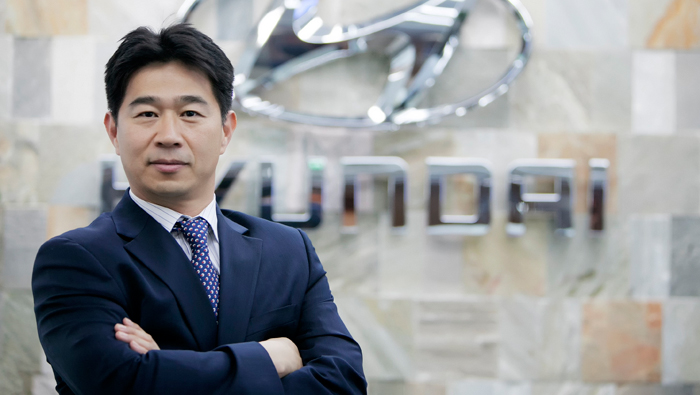
Muscat: The needs of electric car owners must be included in future plans for residential buildings, along with clear strategies for retrofitting existing homes with overnight recharging points, Hyundai’s top manager in Africa and the Middle East said.
Mike Song, the carmaker’s head of Operations for Africa and the Middle East, said Hyundai has ambitious plans for low- or zero-emissions cars in the region, and that internationally it has a wider range of drivetrains than any other company, including fully electric, plug-in, hybrid, and hydrogen fuel cell.
While each technology has its advantages, Song said that fully electric vehicles, using batteries for energy storage, offer the fastest route towards zero emissions, as long as people can keep their cars charged. With current home design, that may not be possible.
“There is now very real consumer excitement around electric driving,” Song said. “In our existing urban design, however, the only people who can realistically make that switch are those who live in a house or villa with an attached garage, because they are the only ones who can plug into a power supply to recharge overnight. If you park on the street, or even in basement parking for an apartment building, keeping your battery charged will be much more difficult.”
While cities worldwide are experimenting with kerbside recharging points for cars parked on the street, Song says it will be down to property developers and managers, as well as homeowners’ associations, to make sure that residential car parks can provide a charging socket for each car that needs one, along with a system for billing the cost.
This will most likely need planning authorities, including governments and municipalities, to incorporate recharging points into their planning regulations – both as a standard requirement on new buildings and with clear guidelines on upgrading existing properties.
“We must ensure that, if you have allocated parking for an apartment, you can expect to recharge an electric car as part of that parking,” said Song. “Given time, consumer demand will ensure this happens, but the authorities can help drive the transition by including this expectation in building codes.”
Hyundai is quickly establishing itself as a leader for electrified drivetrains, with several eco-models across its global product range, and multiple drivetrain options. It is a flexible approach that aims to provide a realistic pathway towards clean mobility, able to fit the needs of different customers and markets.
Current production models include electric versions of the IONIQ – which is also available as a plug-in and a hybrid – and now the KONA compact SUV as well. The company also offers a Sonata Hybrid and was the first to offer a hydrogen fuel cell vehicle as a mass-produced model with the Tucson FCEV in production since 2013. That is now due to be replaced by an FCEV-only SUV, the Nexo, which was unveiled at the Consumer Electronics Show (CES) in Las Vegas in January.
Within Africa and Middle East region, the company is already offering versions of the IONIQ eco-car in several markets. It is also introducing the Sonata Hybrid, particularly for taxi use.